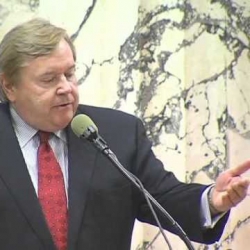The state of Mississippi saw the introduction of an Internet gambling bill this week. The bill would legalize online gambling in Mississippi, bringing the number of U.S. states to 4 that would license, regulate, and tax Internet gaming. Washington also saw a bill introduced to legalize online gambling in that state.
Same Bill as 2014
Mississippi State Representative Bobby Moak introduced the Mississippi Lawful Internet Gaming Act of 2015. Rep. Moak introduced the same bill in 2014, but it was not passed by the state legislature.
When it is said that Mississippi Lawful Internet Gaming Act of 2015 is the same as the Mississippi Lawful Internet Gaming Act of 2014, the speaker is being literal. The language in the 2015 version of the bill is the exact same as the language in the previous year, right down to a seeming typo that appeared in the bill in 2014.
Following Land-Based Gaming Laws
If Bobby Moak’s law went into effect, then all forms of gambling that are legal in Mississippi’s land-based casinos would be legal in the online gaming arena. Mississippi has a substantial brick-and-mortar casino industry, as Biloxi and Gulfport are casino cities along the Gulf Coast, while Tunica County is full of numerous casinos in the north end of the state.
To play, gamblers would have to be 21 years of age and would have to provide two forms of visual identification. Also, players would need to be inside the state boundaries of Mississippi when playing. This means residents would not be able to gamble legally when traveling outside the state. It also would mean visitors to the state would be able to gamble while in Mississippi. Most online gaming sites allow people to deposit cash from anywhere inside the USA, but do not allow them to play but in select states.
Geolocation Software
Geolocation software would be required to play. Geolocation software assures that gamblers’ computers are inside the state, or else they cannot partake in wagers.
Deposit Methods & Money Practices
Deposits in the Mississippi market could be done through several means: credit cards, debit cards, cash, check, money order, or bank wire transfers. To make a withdrawals, player would need to accept cash or checks.
Online gambling sites would not be allowed to offer markers (credit). Anyone who signs up for the land-based self-exclusion list would be able to register for the online self-exclusion list, too.
Internet Gambling Cafe Bill
Internet gambling cafes would be illegal, unless the cafe had a license to house online gambling. In that way, Bobby Moak’s bill allows lawmakers to kill two proverbial birds with one stone.
Internet gambling cafes have become a controversial topic in the law enforcement and gambling communities in the past few years. Such cafes look like standard Internet cafes, but they instead house gaming portals with real money stakes.
Such cafes have sprung up in strip malls and shopping centers in more than 20 U.S. states. They are hard to spot by local law enforcement, and often occupy a gray area in many state laws. Over the past few years, 20 U.S. states have passed laws banning or curtailing such cafes.
Washington Online Poker Bill
In Washington state this week, State Representative Sherry Appleton introduced House Bill 1114, which would legalize online poker in the state. The bill is quite similar to similar legalization that is being discussed in California. If Appleton’s bill passed, online casinos would remain illegal.
The current drive towards online gambling began in 2011, when the states of New York and Illinois asked the U.S. Justice Department to render an opinion on which forms of gambling were illegal under the UIGEA law of 2006. The Justice Department replied that online sports betting was illegal, but online casinos and poker rooms could be sanctioned by U.S. states. This led Delaware, Nevada, and New Jersey to legalize, license, regulate, and tax online betting sites in the state.

